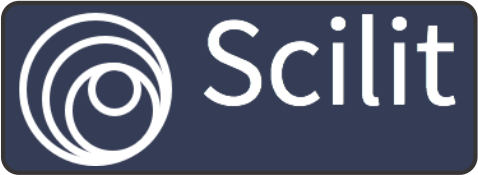The Influence of Capital and Online Marketing Strategies on MSME’s Development in Madiun City
DOI:
https://doi.org/10.21154/joie.v3i2.7547Keywords:
capital, online marketing strategy, MSME developmentAbstract
Introduction: The Micro, Small, and Medium Enterprises Group (UMKM) in Madiun City is a facility for MSME actors with a business license. The goal of this MSME group is for their efforts to achieve maximum development results. However, the MSME group's business in Madiun City still needs to develop. This can be seen from the addition of capital and the use of technology in a marketing strategy that does not make the business being run develop. Based on these problems, this study aims to test and analyze whether capital and online marketing strategies positively affect the development of MSMEs in the MSME Group in Madiun City. Research Methods: The type of research used is quantitative research with a population of 300 and a sample of 75 respondents. This study uses the Probability Sampling technique of Simple Random Sampling and data collection methods using a questionnaire/questionnaire. Statistical data analysis technique using SPSS 16.0. This research uses validity, reliability, descriptive analysis, classical assumption test, t-test, f-test, multiple linear regression, and coefficient of determination. Result: The results of this study indicate that (1) capital has a positive and significant effect on the development of MSMEs in the MSME group in Madiun City, (2) online marketing strategies have a positive and significant effect on the development of MSMEs in the MSME group in Madiun City, (3) capital and strategies Online marketing simultaneously has a positive and significant effect on the development of MSMEs in the MSME group in Madiun City. Conclusion: Based on the results of hypothesis testing, it can be concluded that the capital variable and online marketing strategy simultaneously (together) have a positive and significant effect on the development of MSMEs in the MSME group in Madiun City.
References
Anggraeni, C. D. (2019). Strategi Pengembangan Usaha Mikro Kecil Menengah (UMKM) Melalui Inovasi Produk. In Skripsi. Universitas Muhammadiyah Sidoarjo.
Anggraini, Y., & Putri, N. M. (2023). The Effect of Product Innovation, Price, and Service Quality on Purchasing Decisions for Herbalife Products. Journal of Islamic Economics (JoIE), 3(1), 76”“92.
Anoraga, P. (1997). Manajemen Bisnis. Rineka Cipta.
Bayu, T. B., Ulya, H. N. N., Damayanti, Y., & Ulya, H. N. N. (2023). Analisis Pembiayaan Produk Mikro Ekspress pada Usaha Mikro Kecil dan Menengah di Bank Pembiayaan Rakyat Syariah Mitra Mandiri Sukses Gresik. Journal of Sharia Economic Law, 4(1), 21”“32.
Budiarto, R., Putero, S. H., Suyatna, H., & Astuti, P. (2015). Pengembangan UMKM antara Konseptual dan Pengalaman Praktis. Gadjah Mada University Press.
Chaffey, D., Ellis-Chadwick, F., & Mayer, R. (2009). Internet Marketing: Strategy, Implementation and Practice. Pearson Education.
Christy, F. E. (2021). Jumlah UMKM di Indonesia - Data Tempo.co.
Djazuli, H. A. (2019). Kaidah-kaidah Fiqh. Prenada Media.
Doyle, C. (2011). Kamus Pemasaran. Indeks.
Fatimah, S., Yahya, M., & Hisan, K. (2021). Pengaruh Modal Usaha, Kualitas Sumber Daya Manusia, dan Strategi Pemasaran Terhadap Pengembangan UMKM di Kecamatan Kota Kualasimpang Kabupaten Aceh Tamiang. JIM: Jurnal Ilmiah Mahasiswa, 3(2), 151”“172. https://doi.org/10.32505/jim.v3i2.3481
Istinganah, N. F. (2019). Pengaruh Modal Usaha, Tingkat Pendidikan dan Karakteristik Wirausaha terhadap Perkembangan Usaha Kecil dan Menengah Kecamatan Pedurungan Kota Semarang. Universitas Negeri Semarang.
Juliasty, S. (2009). Cerdas Mendapatkan dan Mengelola Modal Usaha. PT Balai Pustaka (Persero).
Kasmir. (2006). Kewirausahaan. Rajawali Pers.
Kristiyanti, M., & Rahmasari, L. (2015). Website sebagai Media Pemasaran Produk-Produk Unggulan UMKM di Kota Semarang. JAM: Jurnal Aplikasi Manajemen, 13(2), 186.
Nitisusastro, M. (2010). Kewirausahaan dan Manajemen Usaha Kecil. Alfabeta.
Purba, D. S., Kurniullah, A. Z., Banjarnahor, A. R., Revida, E., Purba, P. B., Sari, A. P. S., Hasyim, Yanti, Butarbutar, M., Fuadi, Aznur, T. Z., Purba, B., & Rahmadana, M. F. (2021). Manajemen Usaha Kecil dan Menengah. Yayasan Kita Menulis.
Rahayu, D. (2020). Pengaruh Modal Usaha, Strategi Pemasaran dan Pelayanan Prima terhadap Perkembangan UMKM (Studi Kasus pada Reparasi Sepeda Motor di Kecamatan Pakem Kabupaten Sleman). Jurnal Pendidikan Dan Ekonomi, 09(01), 27”“36.
Rudjito. (2003). Strategi Pengembangan UMKM Berbasis Sinergi Bisnis.
Sari, Y. R. (2023). SEHATI’s Contribution (Free Halal Certification) for Medium and Small Enterprises (UMK) in Indonesia. Journal of Islamic Economics (JoIE), 3(2), 15”“30. https://doi.org/10.21154/joie.v3i2.6343
Sugiyono. (2016). Metode Penelitian Kuantitatif, Kualitatif, dan R&D. Alfabeta.
Sukoco, A. R. F., N.P, M. W. E., & ZA, Z. (2015). Pengelolaan Modal Kerja Usaha Mikro untuk Memperoleh Profitabilitas (Studi pada UD. Warna Jaya Periode 2011-2013). Jurnal Administrasi Bisnis (JAB), 22(1), 1”“9.
Tambunan, T. (2012). Usaha Mikro Kecil dan Menengah di Indonesia: Isu-isu Penting. LP3ES.
Ulya, H. N. (2015). Permintaan, Penawaran dan Harga Perspektif Ibnu Khaldun. Justicia Islamica, 12(2), 143746.
Wijoyo, H., Ariyanto, A., Wongso, F., Indrawan, I., Musnaini, M., Akbar, M. F., Anggraini, N., Suherman, S., Suryanti, S., & Devi, W. S. G. R. D. (2021). Strategi Pemasaran UMKM di Masa Pandemi. Insan Cendekia Mandiri.



















